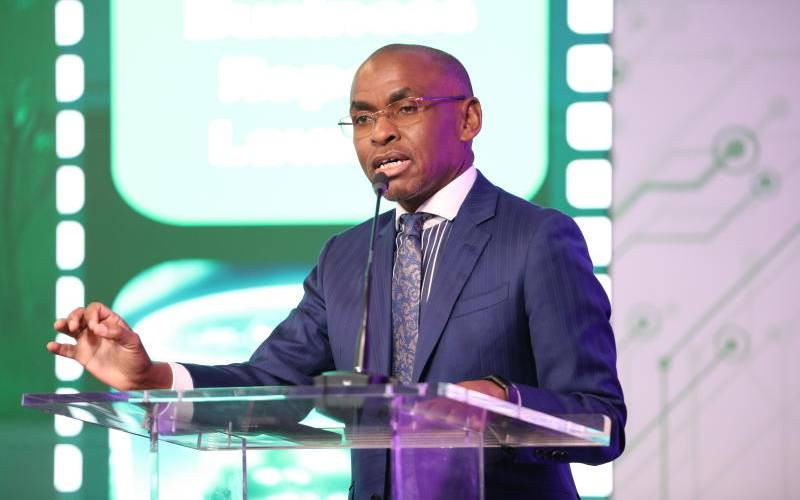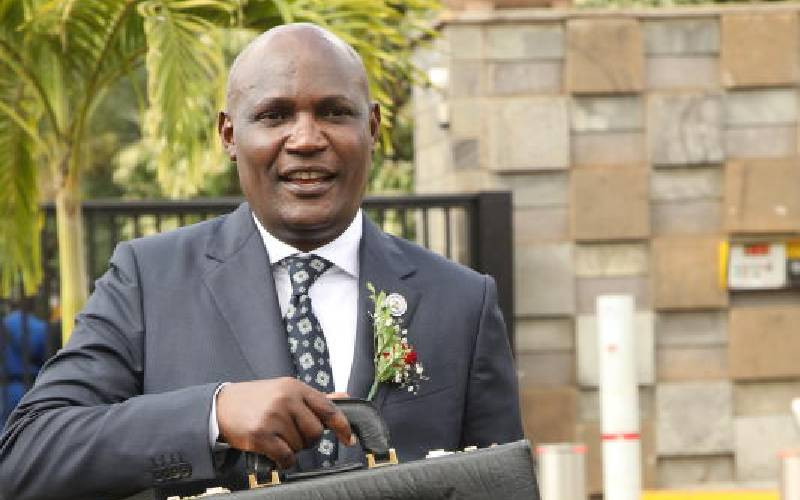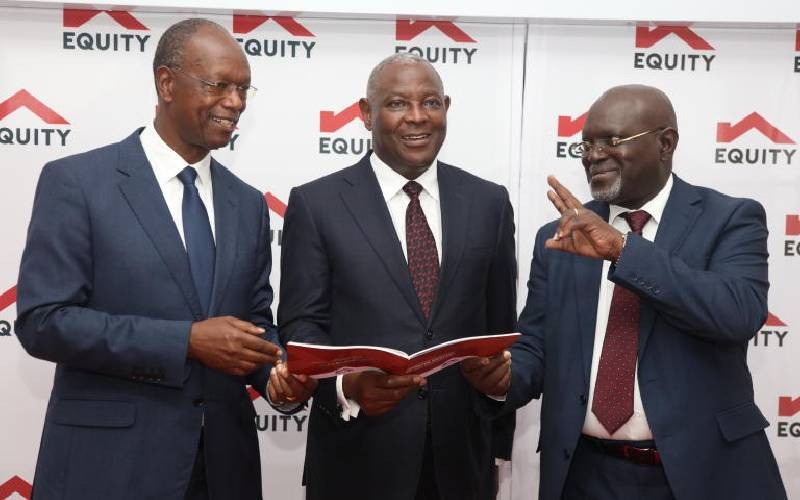Safaricom CEO Peter Ndegwa speaking during 2025 sustainable business report launch.[Wilbrforce Okwiri,Standard]

Safaricom CEO Peter Ndegwa speaking during 2025 sustainable business report launch.[Wilbrforce Okwiri,Standard]
Safaricom, through the M-Pesa Foundation, has unveiled a Sh30 billion education initiative that will provide 10,000 scholarships and upgrade more than 600 schools across the country over the next five years.
The programme, dubbed “Citizens of the Future,” aims to improve learning and training outcomes by equipping teachers with digital and ICT skills to enhance education delivery nationwide.
Peter Ndegwa, the Safaricom CEO said that the education intervention seeks to bridge the gap through innovation and material support.
“Under this programme, we are consolidating our initiatives to ease access to education, from early learning to technical and vocational training in an initial investment of about Sh30 billion in the next five years,” Ndegwa, said.
The Telcom giant said the programme will involve the development of model institutions reflective of “schools of the future” that will signify future learning, with modern infrastructure that is built sustainably, integrated with technology and with an emphasis on inclusivity for learners with special needs.
Further, the firm noted that the adoption of technology in education will not only enrich the educational landscape, but also enable learners and teachers navigate a world that demands adaptability, aligning to the shifting needs of the new socio-economic order.
According to Nicholas Nganga, Chairman of the M-PESA Foundation, the quality of education has great impact on communities.
“We are witness to what quality education can do for communities and therefore owe our learners and teachers an enhanced experience. In a world that is increasingly driven by digital advancements, the traditional classroom setting is evolving into something far more dynamic. We are going beyond supplementing education to transforming it,” said Nganga.
The programme comes at a time the telco is celebrating 25 years of transforming lives.
This is also at a time when Kenya’s education system still faces challenges, despite decades of investment and reforms.
The challenges span from inadequate capitation to a lack of teaching materials, hampering the improvement of learning spaces and corresponding infrastructure that support requisite skilling to match human-capital requirements of the digital age.
“This does indeed come at a defining moment. Our objective under the "Citizens of the Future" is to enable every region have a model institution that not only trains for academic excellence, but to mould future-ready learners through digital integration,” said Michael Joseph, a Trustee member of the M-PESA Foundation.
In the financial year 2023- 2024 the education sector received an allocation of Sh628.6 billion, accounting for 20.7 per cent of national revenue and 4.7 per cent of the country’s GDP, positioning Kenya well above the UNESCO minimum threshold of 4 per cent, but below the recommended share of 15-20 per cent of total public expenditure.
Stay informed. Subscribe to our newsletter







